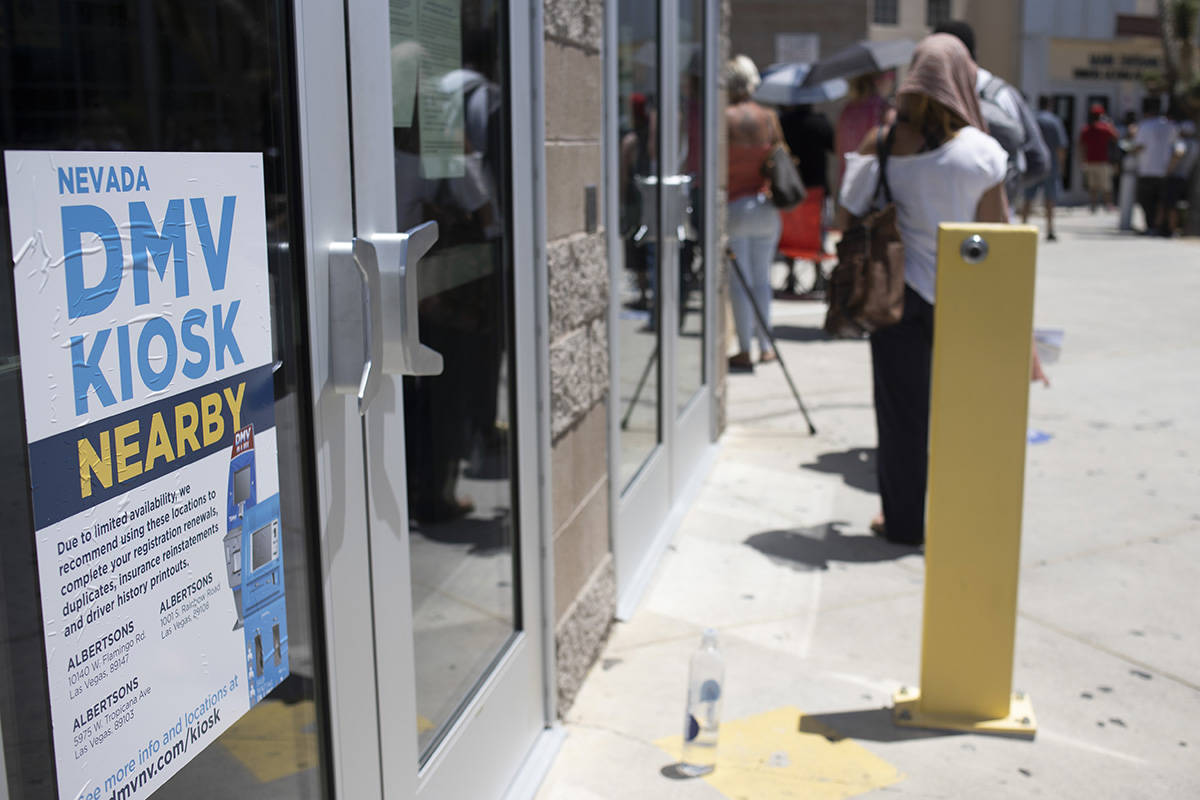Pelaa Casino: 100% Welcome Bonus + 150 Casino Accept Expired Id Extra Spins Double up your first deposit with a 100% bonus, up to £ 100, and get an extra 150 spins on top. Change Password.
COVID-19 Update: USCIS Provides I-9 Guidance on Expired Driver’s Licenses and State IDs
To subscribe to our blog, copy this URL and paste it to your RSS reader: https://www.lawlogix.com/feed/
- Casino Accept Expired Id Jan 06, 2012 Probably not, most casinos bars etc, state that a VALID ID is required to get in, an expired license is no longer valid. Best way to find out though, is to call the casino itself and ask them. It depends on your state's gaming laws.
- Georgia does not specify whether or not Notaries may accept expired ID as identification. If a Notary will not accept your expired ID as proof of Identity, you can instead bring two credible witness to the notarization who know you personally and can provide acceptable identification for themselves to the Notary.
If you need an RSS feed reader, you can try https://feedly.com
UPDATED: On Monday, March 30, 2020, the USCIS provided us with revised (and clarified) guidance on how to document an expired driver’s license or state ID on the Form I-9 due to a COVID-19 extension. Our original article has been modified as indicated in red font below.
During the past few weeks, many states across the US have been closing their DMV branch offices to the public in order to limit the spread of the coronavirus (COVID-19). As a result, individuals may be unable to apply for a new driver’s license or state ID, particularly when an in-person visit is required. To minimize customer inconvenience, many of these states are either extending the validity of the driver’s licenses and state IDs automatically or in some cases, simply limiting enforcement in the event of traffic stops.
But as we all know, the Form I-9 rules dictate that employers may only accept unexpired documents, with a few exceptions for certain documents which are auto-extended by DHS (such as EADs). Employers may also accept a variety of different receipts, including those for the application to replace a lost, stolen or damaged document – however, this would not be applicable for someone who is simply renewing their driver’s license or ID.
Last week, we inquired with the United States Citizenship and Immigration Services (USCIS) on whether they would create a special allowance for employees who are unable to renew a driver’s license or state ID as a result of COVID-19. Today, the USCIS responded with the following Q&A guidance:
Q: Many states are extending the expiration date of state IDs and/or driver’s licenses. How should the extension be documented in Section 2?
A: If the employee’s state ID or driver’s license expired on or after March 1, 2020, and the document expiration date has been extended by their state due to COVID-19, then it is acceptable as a List B document for Form I-9. Enter the document’s expiration date in Section 2 and enter “COVID-19 EXT” in the Additional Information field. Employers may also attach a copy of the state motor vehicle department’s webpage or other notice indicating that their documents have been extended.
The Section 2 expiration date should be the actual expiration date printed on the employee’s document and not an auto-extension date.
Employers can confirm that their state has auto-extended the expiration date of state IDs and driver’s licenses by checking the state Motor Vehicle Administration or Department of Motor Vehicle’s website.
Author’s note: as of this writing, the USCIS has not yet published this guidance on their website (however, we expect them to do so very soon).
As indicated in the Q&A above, employers are able to accept expired driver’s licenses or state IDs as a List B document for I-9 purposes so long as the ID expired on or after March 1, 2020. Unfortunately, the guidance is vague on whether the employer should enter the “expired” date in the List B expiration date field or the auto-extended date, which is generally the recommended process for these types of scenarios. LawLogix has inquired with the USCIS, and we anticipate additional guidance will be forthcoming.(Revised 3/30).
In addition, employers are instructed to enter the expired date of the driver’s license (or state ID) in Section 2, which is a departure from how they typically handle auto-extended documents such as EADs. We suspect that the USCIS chose this process in light of the fact that auto-extended dates are often a moving target (since some states are extending for a period of time after the state of emergency has been lifted).
What should you do if your new hire’s driver’s license or state ID expired before March 1, 2020? One thing to remember is that employees may present a wide variety of documents in order to demonstrate both identity and work authorization. Therefore, as a first step, you may inquire whether the individual has any other documents from the Lists of Acceptable Documents which can be presented instead. Asking for alternative documents is a standard practice when an employee provides a document which does not meet the strict requirements of the Form I-9.

*********

If you have any questions on this alert or need help in managing your I-9s remotely during this crisis, please contact us here. LawLogix will continue monitoring this situation very closely, and provide alerts and practice advisories as soon as possible.
About John Fay
Newest Webinar
LawLogix Form I-9 and E-Verify Fall Webinar Series
Join LawLogix for a two-part Webinar series, led by nationally-recognized I-9 expert and immigration attorney, John Fay, as we dive […]Read More »
Recent Posts

7 Perks of LawLogix’s Virtual I-9 Palooza 2020
Similar to most organizations in 2020, we held our annual I-9 Palooza conference as a virtual event. The interactive and […]Read More »Form I-9 Alert: DHS announces 9-month TPS extension for beneficiaries from El Salvador, Haiti, Honduras, Nepal, Nicaragua and Sudan
Today, the Department of Homeland Security (DHS) provided some very good news for hundreds of thousands of foreign nationals residing […]Read More »
Latest White Paper
COVID-19 Update: USCIS Provides I-9 Guidance on Expired Driver’s Licenses and State IDs
To subscribe to our blog, copy this URL and paste it to your RSS reader: https://www.lawlogix.com/feed/
If you need an RSS feed reader, you can try https://feedly.com
UPDATED: On Monday, March 30, 2020, the USCIS provided us with revised (and clarified) guidance on how to document an expired driver’s license or state ID on the Form I-9 due to a COVID-19 extension. Our original article has been modified as indicated in red font below.
During the past few weeks, many states across the US have been closing their DMV branch offices to the public in order to limit the spread of the coronavirus (COVID-19). As a result, individuals may be unable to apply for a new driver’s license or state ID, particularly when an in-person visit is required. To minimize customer inconvenience, many of these states are either extending the validity of the driver’s licenses and state IDs automatically or in some cases, simply limiting enforcement in the event of traffic stops.
But as we all know, the Form I-9 rules dictate that employers may only accept unexpired documents, with a few exceptions for certain documents which are auto-extended by DHS (such as EADs). Employers may also accept a variety of different receipts, including those for the application to replace a lost, stolen or damaged document – however, this would not be applicable for someone who is simply renewing their driver’s license or ID.
Last week, we inquired with the United States Citizenship and Immigration Services (USCIS) on whether they would create a special allowance for employees who are unable to renew a driver’s license or state ID as a result of COVID-19. Today, the USCIS responded with the following Q&A guidance:
Q: Many states are extending the expiration date of state IDs and/or driver’s licenses. How should the extension be documented in Section 2?
A: If the employee’s state ID or driver’s license expired on or after March 1, 2020, and the document expiration date has been extended by their state due to COVID-19, then it is acceptable as a List B document for Form I-9. Enter the document’s expiration date in Section 2 and enter “COVID-19 EXT” in the Additional Information field. Employers may also attach a copy of the state motor vehicle department’s webpage or other notice indicating that their documents have been extended.
The Section 2 expiration date should be the actual expiration date printed on the employee’s document and not an auto-extension date.
Employers can confirm that their state has auto-extended the expiration date of state IDs and driver’s licenses by checking the state Motor Vehicle Administration or Department of Motor Vehicle’s website.

Author’s note: as of this writing, the USCIS has not yet published this guidance on their website (however, we expect them to do so very soon).
As indicated in the Q&A above, employers are able to accept expired driver’s licenses or state IDs as a List B document for I-9 purposes so long as the ID expired on or after March 1, 2020. Unfortunately, the guidance is vague on whether the employer should enter the “expired” date in the List B expiration date field or the auto-extended date, which is generally the recommended process for these types of scenarios. LawLogix has inquired with the USCIS, and we anticipate additional guidance will be forthcoming.(Revised 3/30).
In addition, employers are instructed to enter the expired date of the driver’s license (or state ID) in Section 2, which is a departure from how they typically handle auto-extended documents such as EADs. We suspect that the USCIS chose this process in light of the fact that auto-extended dates are often a moving target (since some states are extending for a period of time after the state of emergency has been lifted).
What should you do if your new hire’s driver’s license or state ID expired before March 1, 2020? One thing to remember is that employees may present a wide variety of documents in order to demonstrate both identity and work authorization. Therefore, as a first step, you may inquire whether the individual has any other documents from the Lists of Acceptable Documents which can be presented instead. Asking for alternative documents is a standard practice when an employee provides a document which does not meet the strict requirements of the Form I-9.
*********

If you have any questions on this alert or need help in managing your I-9s remotely during this crisis, please contact us here. LawLogix will continue monitoring this situation very closely, and provide alerts and practice advisories as soon as possible.
About John Fay
Newest Webinar
LawLogix Form I-9 and E-Verify Fall Webinar Series
Join LawLogix for a two-part Webinar series, led by nationally-recognized I-9 expert and immigration attorney, John Fay, as we dive […]Read More »
Recent Posts
Will Casino Accept Expired Id Registration
7 Perks of LawLogix’s Virtual I-9 Palooza 2020
Similar to most organizations in 2020, we held our annual I-9 Palooza conference as a virtual event. The interactive and […]Read More »Form I-9 Alert: DHS announces 9-month TPS extension for beneficiaries from El Salvador, Haiti, Honduras, Nepal, Nicaragua and Sudan
Today, the Department of Homeland Security (DHS) provided some very good news for hundreds of thousands of foreign nationals residing […]Read More »